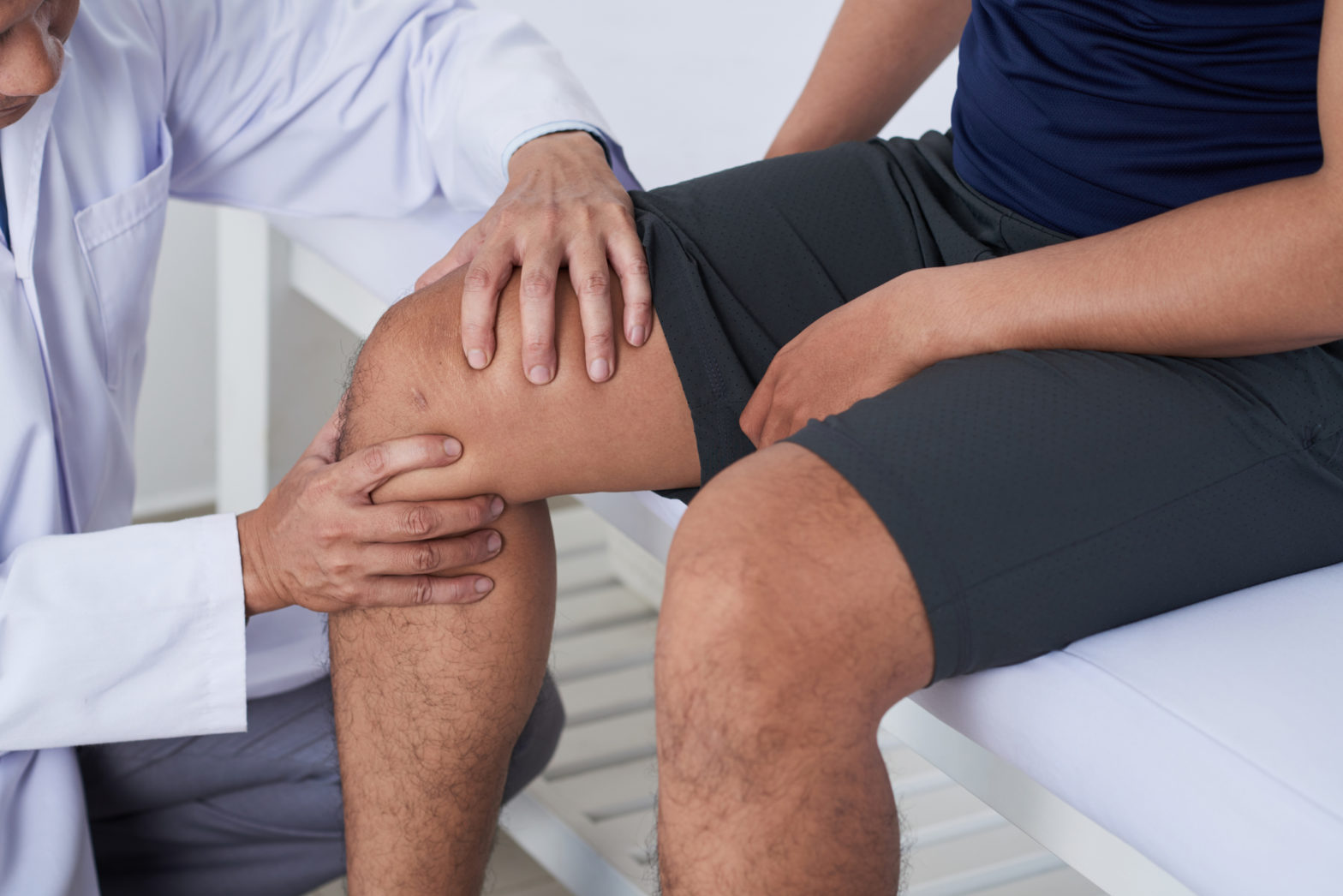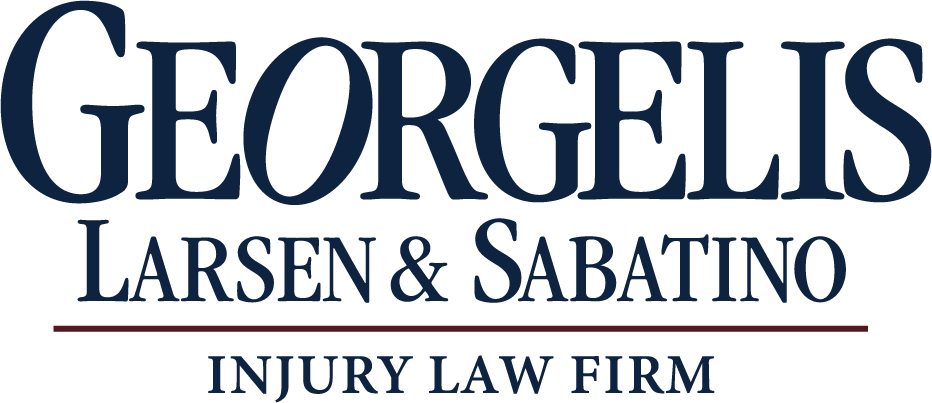
Our Workers’ Comp Attorneys in Lancaster, Pennsylvania Explain how Workers’ Compensation Comes into Play for Knee Injuries
Workplace injuries are a common occurrence across the United States. According to the National Institute for Occupational Safety and Health, more than 2.5 million workers were hurt on the job in 2019, and of those injuries, 5.8% were injuries to the knee.
When someone injures their knee at work, it can result in weeks and months of recovery including doctor’s appointments, occupational and physical therapy, and sometimes even surgery. Some knee injuries can be traumatic and leave the injured worker with permanent mobility issues or chronic pain.
If you injured your knee at work, do you know what to do after your injury? Let’s dive into:
- Common Ways People Injure Their Knee at Work
- Types of Knee Injuries
- What to Do if You Injure Your Knee at Work
- How Workers’ Compensation Can Help After a Knee Injury
Common Ways People Injure Their Knee at Work
Knee injuries on the job can happen in many ways. Workers in manufacturing environments or on construction sites can slip and fall on hazards, and office workers may injure their knees on untreated icy stairs or sidewalks. Workers with jobs such as carpenters, floor installers, housekeepers, bricklayers, and other trade industries have the highest risk for occupational knee injuries.
Some of the most common ways people injure their knees at work include:
- Slips and falls: Slips and falls are the most common ways someone injures their knee at work. Workers on ladders are especially at risk for knee injuries not only from a fall but also from repetitive climbing. Employees who work in an office setting can also suffer knee injuries from a slip and fall on stairs or on a hazard such as a wet floor.
- Overexertion: For workers who must kneel and stand over and over for their job, or who engage in repetitive bending, twisting and turning as part of their work duties, they may end up with a knee injury. The knee is the most used joint in the body and constant use can cause wear and tear and eventually an injury. Overexertion also occurs from strain when lifting objects and sudden movements or twisting motions.
- Blunt force to the knee: Workers in dangerous industries such as logging, mining, roofing, transportation, and construction have a greater risk of being hit by an object in the knee. Falling inventory, large machinery, and even construction materials can cause severe injuries to the knee.
Types of Knee Injuries
Occupational knee injuries range from minor sprains that require rest, to major fractures that can require surgery. For some injured workers, recovery can take just a few days, and others, weeks, months, or even years.
The most common types of knee injuries are:
- Hyperextension: Hyperextension happens when someone jumps or falls abruptly and the knee bends backward. Sometimes injured workers will hear a “pop,” which is the sign of hyperextension and a torn ligament. The two main ligaments that are affected in a hyperextended knee are the anterior cruciate ligament (ACL) and the posterior cruciate ligament (PCL).
- Ligament strains and tears: Ligament strains and tears are not only caused by hyperextension. Sudden falls or blunt impact can also cause ligament injuries. Early treatment for a ligament strain or tear may include rest, ice, and compression. Most sprain or partial tears heal in 3 months, and for complete tears, the recovery can take up to 6-9 months.
- Meniscus strains and tears: When the knee is healthy, there are smooth layers of cartridge called menisci around the knee. When these are injured either with a strain or a tear, the injured worker may experience pain, stiffness, swelling, trouble walking, or difficulty bending the knee.
- Bruises and contusions: Knee bruises and contusions are minor injuries that occur either during a fall or when an object hits the knee. The small blood vessels in the knee burst, causing bruises and contusions. Treatment for this type of injury is usually elevating the knee, rest, ice, over-the-counter pain medications, and in some cases, using crutches or a cane.
- Kneecap dislocation or fracture: Most of the time, a dislocated or fractured kneecap happens after a traumatic event that pushes the knee joint out of place. Kneecap injuries are extremely painful and can take months to recover from completely.
If you injured your knee while on the job, you may be entitled to workers’ compensation to help cover your medical bills, lost wages, and related expenses. Before talking to an insurance company, consult with a personal injury or workers’ compensation attorney. An experienced attorney can help you navigate the workers’ compensation claims process and protect your rights.
What to Do if You Injure Your Knee at Work
Each day, thousands of people are injured on the job. If you suffered a work injury to the knee or any injury, it’s important to know what to do to ensure your rights are protected.
- Seek Medical Attention: First and foremost, if you experienced an acute or chronic knee injury at work, seek medical attention immediately. Even if you feel the injury is minor and not worth leaving the job to get it checked out, it could turn into crippling pain down the road. Go to urgent care or the emergency room. It’s important to tell the medical provider that you were injured on the job.
- Notify Your Employer: As soon as possible, notify your employer that you were injured at work. Once you tell them about your injury, they are required to give you their list of workers’ compensation medical providers—from which you are allowed to choose with whom to treat—and instructions on how to file your claim. If your employer does not offer this to you, ask for it directly.
- File a Workers’ Comp Claim: Your knee injury should be eligible for coverage through your employer’s workers’ compensation insurance. Your employer may not file the claim for you – be sure to follow the steps to file the claim on your own. And, whether or not your claim is accepted, it is always a good idea to have an experienced and successful workers’ comp attorney involved to make sure you are protected and receiving all of the benefits to which you are entitled.
How Workers’ Compensation Can Help After a Knee Injury
Workers’ comp is a form of insurance providing wage replacement and medical benefits to employees injured while working for their company. When someone files a workers’ compensation claim, they receive benefits—irrespective of fault for the incident—and give up the right to sue the employer for negligence. This “trade-off” is compelled by Pennsylvania law.
Workers’ compensation benefits cover medical bills, physical therapy bills, and a portion of your wages. When a worker is unable to return to work at full capacity, they may be eligible for disability benefits depending on their medical diagnosis. Disability benefits are categorized as:
- Temporary Total Disability: Temporary total disability benefits are extended to workers who are completely disabled by their injury and cannot perform the job they have at the time of their work injury.
- Temporary Partial Disability: Temporary partial disability benefits inure to workers who return to work after a job-related injury—it may or may not be their pre-injury position—and are experiencing a loss of earnings. Some knee injuries can create a partial disability for an employee.
- Specific Loss: When someone injures their knee beyond repair and has a loss of function of the knee, this is categorized as a specific loss. Specific loss injuries are the most severe and can permanently impact the quality of life of the injured.
Workers’ compensation is meant to protect the livelihood of workers injured on the job. If you suffered a knee injury, you have the right to pursue a workers’ compensation claim. Do not let your employer or insurance company minimize your injury or say you do not have the right to file a claim. Consult with an experienced attorney for your work-related injury.
Lancaster’s Top Workers’ Compensation Law Firm
Georgelis, Larsen & Sabatino Injury Law Firm, P.C. helps knee injury victims in Lancaster, PA receive the workers’ compensation benefits they deserve. Our team of attorneys and paralegals has more than 100 years of litigation experience and has handled more than 100 jury trials and thousands of hearings before Pennsylvania trial courts and workers’ compensation judges.
The workers’ compensation system is complicated, and our team is ready to help you recover compensation to cover your medical bills, lost wages, scarring and disfigurement, specific loss, and related expenses. Let us take on the work of the legal system while you recover. Our Lancaster, PA attorneys have recovered over $112,000,000 for those injured at work and hurt in automobile and other accidents.
We offer free consultations and do not charge a fee unless we recover workers’ comp benefits for you. We are available evenings, nights, and weekends to make it easy for you. If you suffered a knee injury at work, call 1-800-HURT-NOW for a no-obligation, free review of your case.





